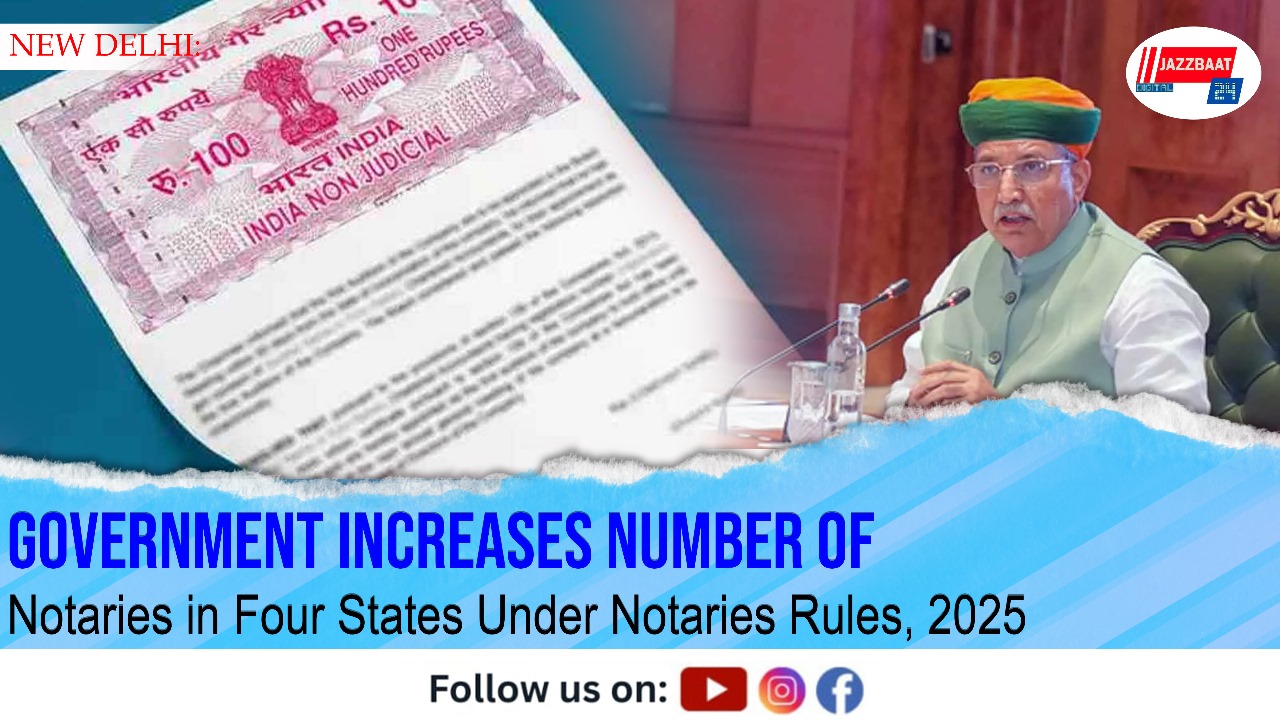NEW DELHI: The Central Government has approved an increase in the number of notaries in four states like Gujarat, Tamil Nadu, Rajasthan, and Nagaland, under the Notaries (Amendment) Rules, 2025, notified by the Department of Legal Affairs, Ministry of Law and Justice.
According to the notification, issued through G.S.R. 763(E) on October 17, 2025, the amendment was made under the powers conferred by Section 15 of the Notaries Act, 1952 (53 of 1952). The revised rules, which came into effect upon their publication in the Official Gazette, amend the Notaries Rules, 1956, by substantially increasing the maximum number of notaries that may be appointed in the four states.
As per the amended schedule, the number of notaries in Gujarat has been raised from 2,900 to 6,000, reflecting one of the largest increases among the states. In Tamil Nadu, the limit has been revised from 2,500 to 3,500, while Rajasthan will now be permitted to appoint up to 3,000 notaries, up from 2,000. In the North-Eastern state of Nagaland, the number has been doubled from 200 to 400.
The Ministry of Law and Justice stated that the decision was taken following requests from the respective state governments. These states cited a sharp increase in population, creation of new districts and tehsils, and a rising demand for notarial services, particularly in remote and semi-urban regions.
The step is aimed at ensuring better accessibility to legal attestation and authentication services for citizens. Notaries play a vital role in verifying affidavits, attesting documents, and administering oaths, essential processes in both personal and commercial legal matters. The increase in appointments is expected to reduce delays and improve efficiency in the delivery of such services.
Officials added that the move aligns with the government’s broader efforts to modernise legal infrastructure and decentralise notarial services to meet administrative and demographic needs. The expansion will strengthen legal service delivery and make official documentation procedures smoother and more accessible to people across all regions of the four states.
